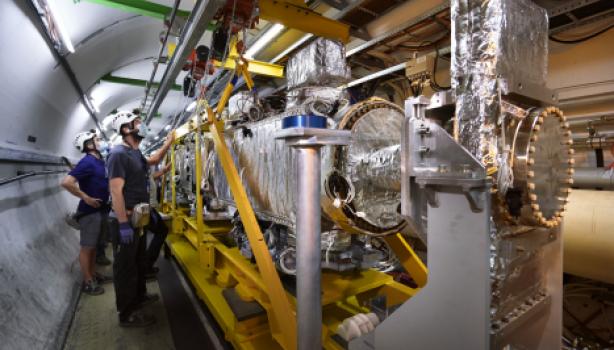The RADiation Effects on Components and Systems (RADECS) conference is an annual international event that brings together scientists and engineers from across the world, working on improving the reliability of semiconductor devices operating in radiation environments. With the increasing complexity of such components and given their widespread application in our daily lives (e.g. the automotive sector, the Internet of Things…); ensuring their reliable operation is becoming a huge challenge, even for relatively benign radiation environments such as that encountered on Earth’s surface, as cosmic rays interact with the atmosphere.
RADECS 2017 was organized by CERN and held at the “Centre International de Conférences de Genève” (CICG), gathering almost 700 attendees, an all-time registration record. Its technical program featured the traditional RADECS sessions, plus four new sessions designed to meet the expectations-demands of the evolving community. In addition, more than 60 companies and institutes were represented in industrial exhibit; a unique opportunity to present their state-of-the-art products and solutions.
![]()
Participants to RADECS 2017 (Image Credit: CERN)
The organization of the RADECS conference reflects CERN’s commitment and involvement in the radiation effects community. Systems developed for the accelerator sector (e.g. power converters, quench protection system, a.o.) and based mostly on Commercial-Off-The-Shelf (COTS) components as opposed to radiation hardened designs must be qualified for their operation in the complex radiation environment present in an accelerator. The Radiation to Electronics (R2E) project’s R&D and qualification activities across the different equipment groups at CERN ensure that the impact of radiation induced failures is within the acceptable margins for the LHC operation. CERN benefits from the know-how of decades of experience in the radiation effects community, and also provides essential input in terms of progress in radiation test facilities, monitoring, and design & qualification approaches.
Moreover, the radiation levels in the LHC experiments demand dedicated designs of electronic components, resulting in the development of leading expertise in the understanding of the basic mechanisms involved in radiation degradation and mitigating solutions through radiation-hardened designs. CERN’s expertise in the various radiation effects to electronics domains were reflected through three short lectures, and more than ten main author contributions to the technical program.
Indeed, radiation effects on electronics are not specific to high-energy physics applications. In fact, these effects were first experienced in space missions in the 70’s, since the radiation levels induced failures in the electronic systems that were not experienced during ground level testing. This lead to the development and use of radiation-hardened solutions for high criticality space missions, for which a trade-off with cost and performance had to be sacrificed in favour of an increased reliability. However, the decrease in the launch price and mission lifetime (e.g. Cube-satellites) has led to an increasing demand in the use of COTS components for space missions. In addition, ground level applications such as for transport,, high-criticality servers and the medical sector, are also starting to experience the negative effects of radiation in their highly distributed systems. The available qualification standards, tailored for high-criticality space missions, are not directly applicable to other domains. Therefore, since March 2017, the RADSAGA (RADiation effects in Space, Accelerator and Ground Level Applications) Horizon 2020 project, coordinated by CERN, aims to address the development of guidelines for COTS based system level testing through 15 PhD projects over a large network of European universities, research institutes and companies.
The RADSAGA initial training lectures featured presentations from experts from Airbus, ESA and NanoExplore, and was a satellite event during the RADECS 2017 conference.
Finally, RADECS 2017 had a rich social programme including a student reception event in the CERN Globe, a Women In Engineering event, a Welcome Reception in the Swiss Tech Centre at EPFL, the Industrial Exhibit and a Gala Dinner. In addition, attendees were able to register for a broad variety of CERN visits.


